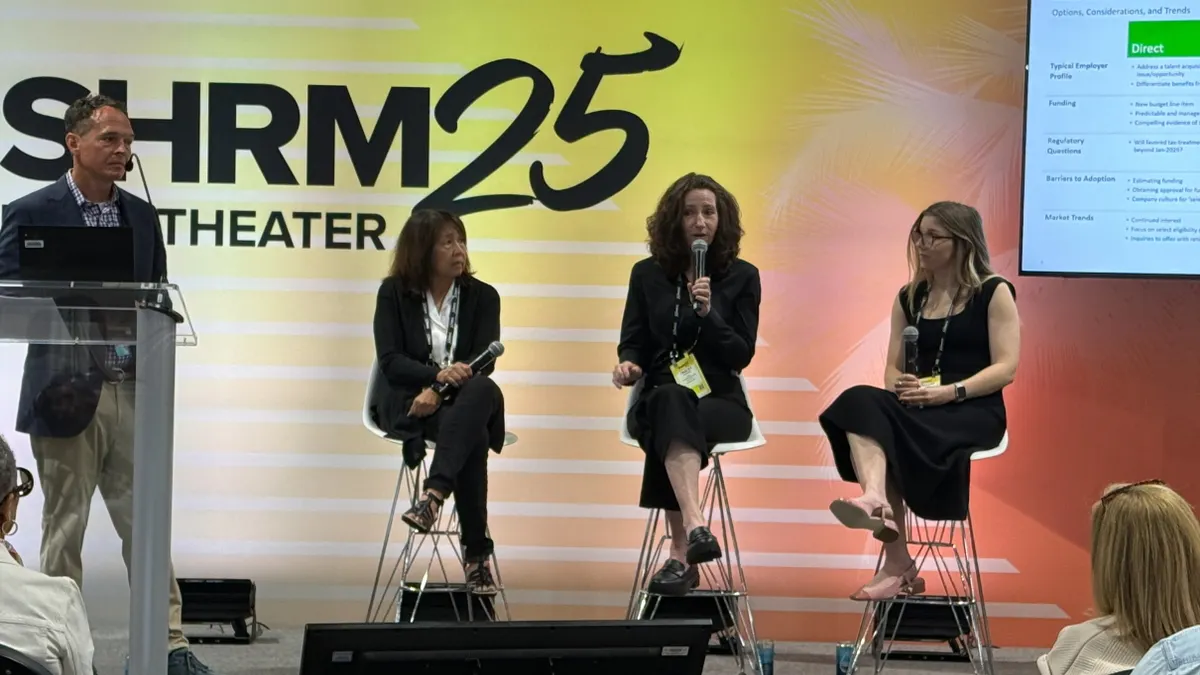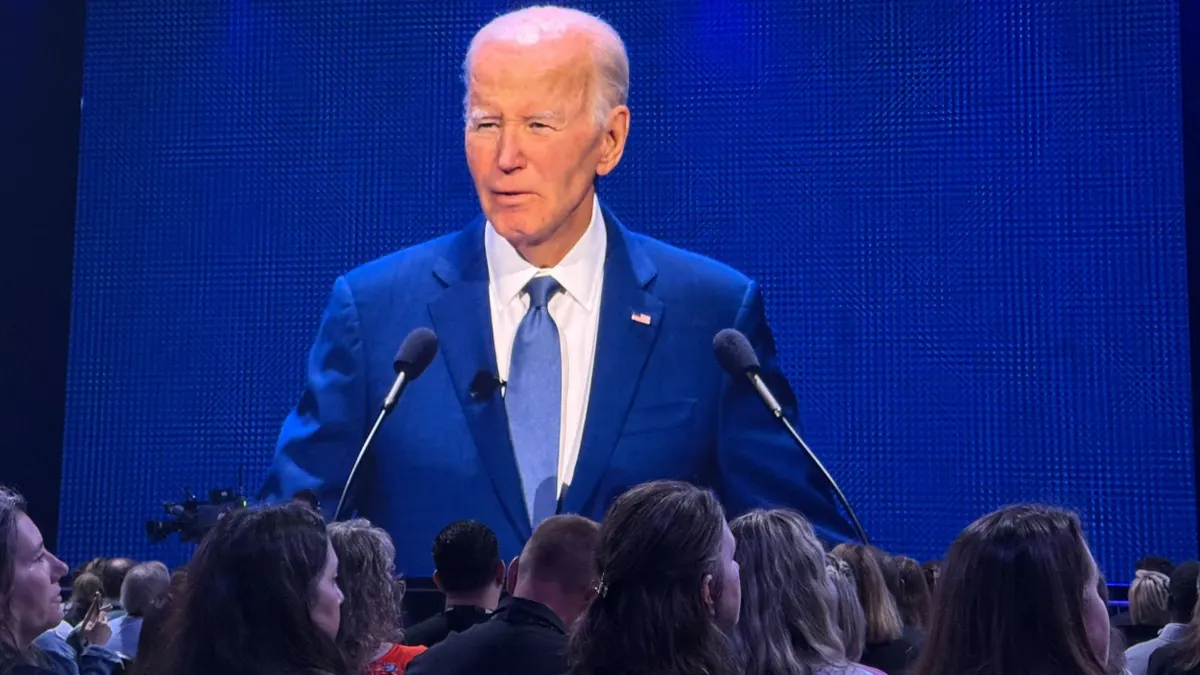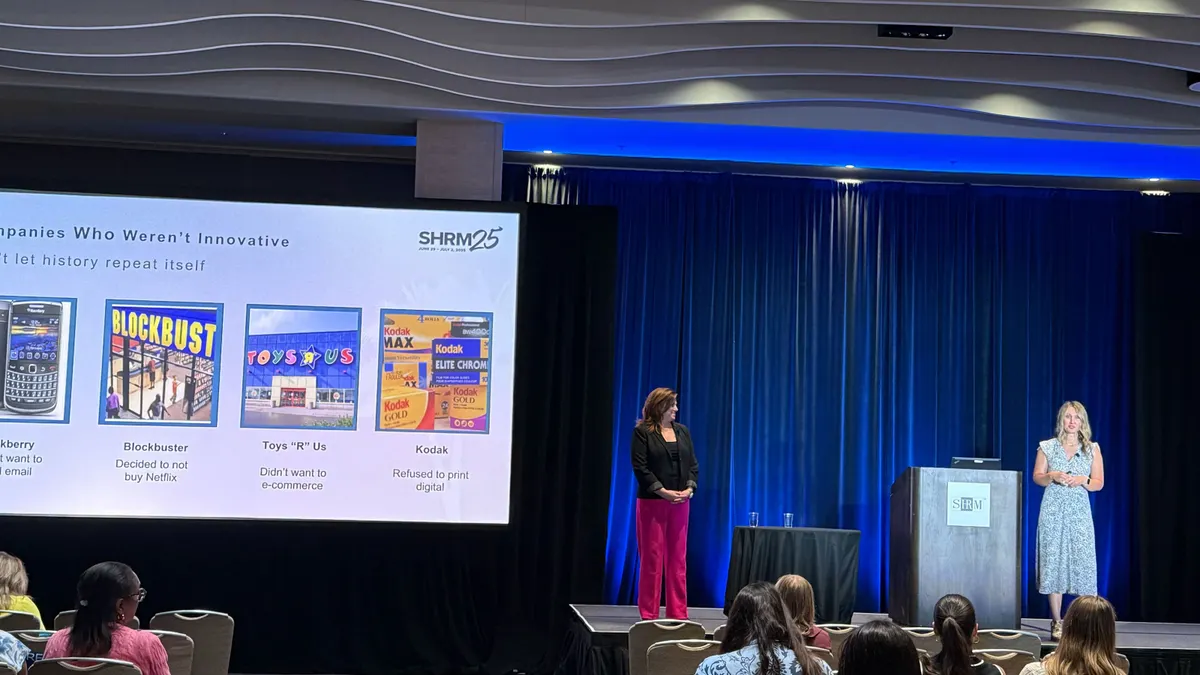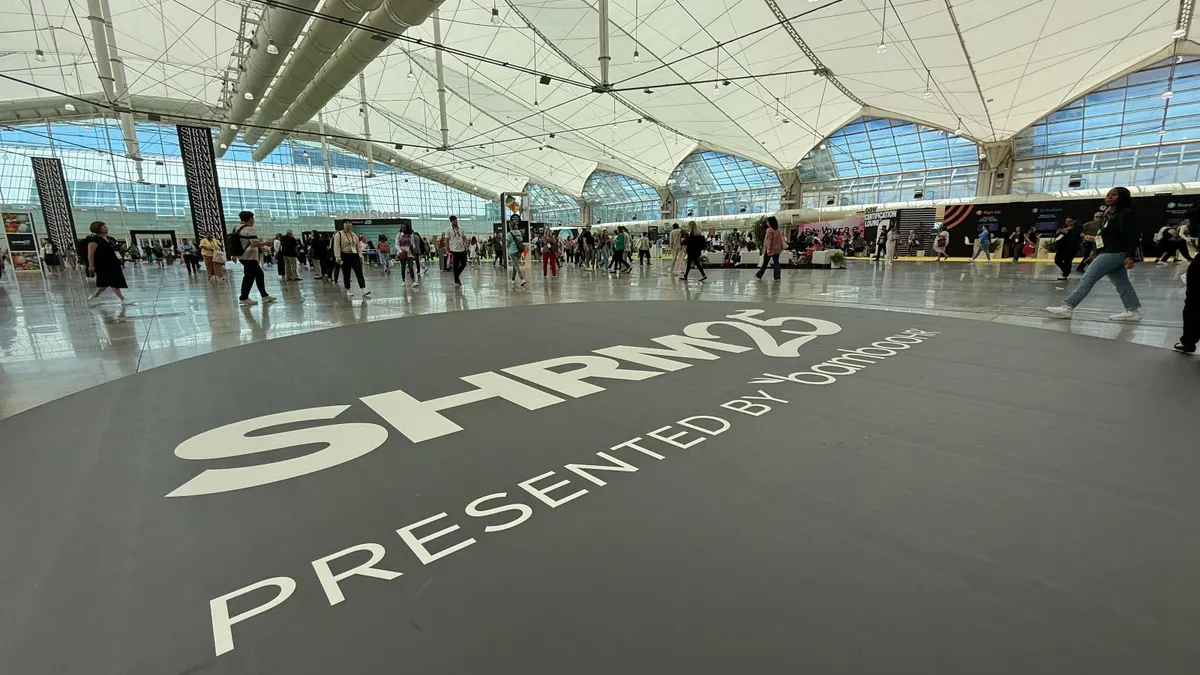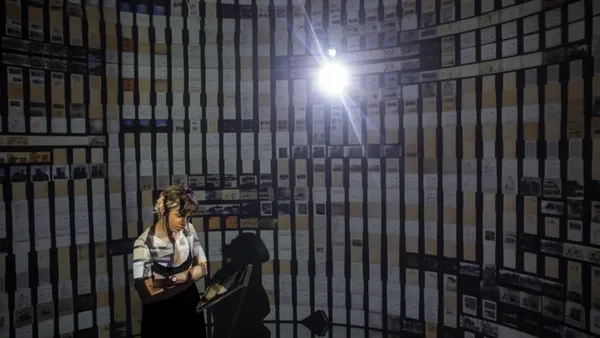SAN DIEGO — President and CEO of SHRM Johnny C. Taylor Jr. predicted “another monster year” for HR during an address to members of the organization and other workforce professionals on Monday.
Acknowledging the darkness of his 2024 opening session, in which he predicted a “storm” would overtake the profession and the workplace, Taylor noted that while “some of you were a little upset,” ultimately his assessment was borne out.
The rapid proliferation of artificial intelligence, increasing layoffs and the process by which DEI, the shorthand for diversity, equity and inclusion, became a “four-letter word” have led to uncertainty and fear in the workplace, he noted.
But “we can’t just track the weather; we have to get you ready to move through it,” he said, citing three areas where HR pros can rise to meet the moment.
‘Equal opportunity’ for all
“Let’s talk about DEI,” Taylor said. “I know you thought I wasn’t gonna say it — was gonna call it something else,” he laughed.
He used the moment to address the organization’s decision to drop “equity” from its policy platform, saying it was made to protect the organization and HR professionals from a “Category 5 hurricane” headed their way.
Just as home builders on the coasts build in anticipation of extreme weather, Taylor said, so too was SHRM “doing its job.”
While he described himself as “over Washington, D.C.” and acknowledged the onslaught of executive orders from the Trump administration, Taylor noted the writing had been on the wall regarding equity since 2023, when the U.S. Supreme Court handed down its decision in Students for Fair Admissions v. Harvard.
“Anyone who objectively read that opinion knew that equity was at risk,” Taylor, who has a background in law, said. “U.S. employment laws focus on equality, not equity.” He noted the names of the Equal Employment Opportunity Commission and the Equal Pay Act.
Despite the drama, the work of HR remains the same, Taylor asserted. “This is about the work, not the words.”
The ‘coming crisis’ of human displacement
Job loss due to AI usage in the workplace is a serious issue with which HR must contend, Taylor said. “I’ve been thinking about this for a while. What will happen to these people?”
“We warned you how fast technology would change work,” he said — a theme that indeed echoed last year’s warning about AI taking over human jobs, which he said at the time kept him up at night.
The answer lies in massive reskilling efforts, he said, including efforts that specifically include certain segments of the population. Recent graduates don’t feel ready for the workforce and employers are avoiding hiring them; “Our kids are not all right, and they need our help,” he said.
On the other hand, the fastest-growing part of the workforce is workers 75 and older, he said. “Reskilling can’t stop at 50,” he added, saying employers shouldn’t assume older means unwilling to upskill, “because it often means uninvited.”
“If we don’t help people shift, we’re not just losing jobs, we’re losing livelihoods,” Taylor said. “And that’s a failure as a society we can’t afford.”
Seeding workplace civility
Finally, Taylor rounded out his address with the issue of workplace incivility, noting people are “literally at each other’s throats” in the workplace.
People are making decisions about each other based on things that aren’t true, but HR must step in to do the “hard, human work” of fostering mutual respect among employees, he said.
HR has been “muted” too long, Taylor said. “You are the honest voice someone is waiting to hear.”










